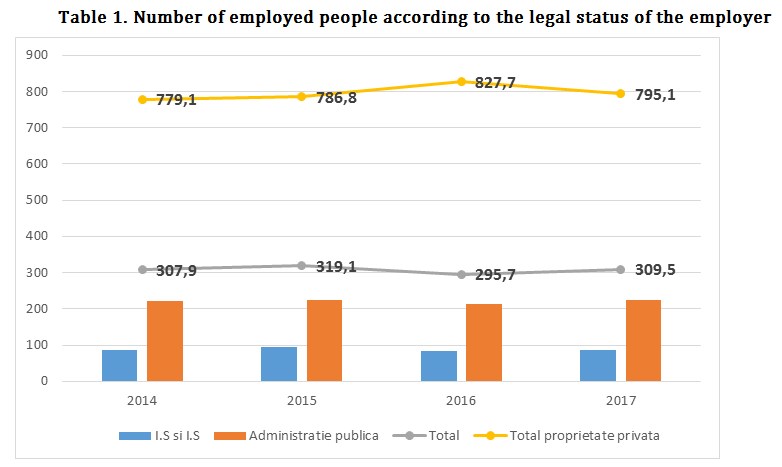
Once the Republic of Moldova declared its independence, it started the process of economic liberalization and privatization of public property. Currently, according to the information provided by the Registration Chamber, in Moldova are registered 1 572 municipal and state companies, and 4 483 joint stock companies, from which almost 5% have the state as a shareholder. The effect of these companies on the national economy in terms of employed people, according to the data provided by the National Bureau of Statistics, is almost 8.4% of the whole amount of employed people in the country. At the same time, the Government employs approximately 21.9% of the total number of employed people in Moldova.

At the same time, according to the National Bureau of Statistics, for 2016 the revenues from sales of companies in which state is shareholder amounts to approximately 20,1% of the whole revenues generated by the business. Furthermore, the effect of these companies on the national economy, but also on the welfare of the population is huge. Besides the social effect they have, by employing a big number of people, these companies also provide important public services such as: utility services, sanitation and sewerage, build and maintain infrastructure, the supply of energy resources, etc.
State companies are not transparent and managed inefficiently
Meantime, the assets that are managed by these companies have not only an intrinsic value, but also a strategic one as it manages the infrastructure, without which the economy of the country wouldn’t exist.
Even though these companies are tremendously important for the national economy, the analysis reveals lack of transparency, inefficient management fueled by political influence. One of such example is the impact of poor and inefficient management of BEM, a cause that leads to its privatization and afterward the theft of the reserves from National Bank of Moldova.
With this initiative, implemented by IDIS and INEKO, the authors follow the objective to create tools used to assess the financial sustainability and transparency of major companies in which state is the shareholder. It is a fact that once the decision-making process and the data is made public; the circles of influence have a smaller space for corruption and theft.
Read the entire article here - Financial sustainability of state-owned enterprises in Moldova: Findings and trends
This material is part of the series of publications "Evaluating the financial sustainability of municipal and state –owned enterprises".
The article was developed within the initiative „Promoting transparency and financial sustainability of regional policies, state – owned enterprises and local authorities in Moldova", implemented by IDIS "Viitorul", in partnership with the Institute for Economic and Social Reforms in Slovakia (INEKO). The initiative is financially supported by the Official Development Assistance of the Slovak Republic (SlovakAid). It aims to improve the efficiency of the state administration, self-government and civil society in the area of creation and control of regional policies, administration of state-owned enterprises, and monitoring of budgets and information openness of municipalities.